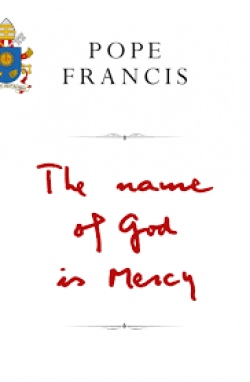 The best spiritual guides both comfort and provoke us. Pope Francis is no exception. His recent little book, (Pope Francis, The Name of God is Mercy, Bluebird, ISBN 978 1 5098 2493 9) published to coincide with the beginning of the Year of Mercy, reveals the vision that underpins his distinctive style and message. His easy and personal writing certainly offers comfort. But his argument is also challenging because central to it are a very strong sense of sin and the traditional form of the Sacrament of reconciliation. Neither of these, I believe, is central among Australian Catholics.
The best spiritual guides both comfort and provoke us. Pope Francis is no exception. His recent little book, (Pope Francis, The Name of God is Mercy, Bluebird, ISBN 978 1 5098 2493 9) published to coincide with the beginning of the Year of Mercy, reveals the vision that underpins his distinctive style and message. His easy and personal writing certainly offers comfort. But his argument is also challenging because central to it are a very strong sense of sin and the traditional form of the Sacrament of reconciliation. Neither of these, I believe, is central among Australian Catholics.
The Pope has consistently emphasised God’s mercy. The motto he chose describes God showing mercy to and calling us. Mercy shapes the Pope’s way of speaking, the places he visits and the people he approaches. His book develops his conviction that mercy lies at the heart of the Gospel. God loves each of us, wants us to come to him, accepts us in our frailty and forgives our sins. The joy of being forgiven encourages us to go out compassionately to others and commend the joy of the Gospel to them.
For Pope Francis mercy is not an idea but an experience. We find a God who comes to us in our sinfulness, isolation and despondency, and discover with joy that we are forgiven and welcomed. That experience of God’s mercy then changes how we relate to others. Instead of sitting back in judgment we go out to welcome others in their chaos and share the good news we have found.
The experience of mercy lies behind the Pope’s most striking remarks. The Church is not a dry cleaning business for removing stains but a field hospital for healing wounds. Nor should the Church judge people but welcome them. Priests should not be away from people but among them. Our business is not to build boundaries but to cross them. Compassion should inform our politics and economics.
The experience of mercy assumes a strong sense of sin. Our joy at meeting a merciful God who forgives us even before we ask depends on recognising the seriousness of our condition. But a deep sense of our sinfulness does not feed gloom and fear; it leads to joy at finding a merciful God. The sense of sin is not important for its own sake but as part of Joy and compassion. If we refuse to acknowledge our own sins we are also more likely to judge others harshly and see the church as a castle to keep others out of.
Pope Francis emphasises that for Catholics confession to a priest is the privileged place where mercy and forgiveness are experienced. The sacrament embodies joy at discovering God’s mercy and forgiveness, defines the priest’s call to enter compassionately the lives of ordinary people, and acknowledges the misery associated with sin. Sin, mercy, joy and our compassion to others and the sacrament are a package deal.
Pope Francis’ commendation of mercy is challenging for many of us Australian Catholics because relatively few Catholics receive the sacrament of reconciliation in its traditional form. For many Catholics their first confession will be one of the few they make in their lives. Communal services of reconciliation at Christmas and Easter are popular, but personal confession seems likely to remain little frequented.
Among Australian Catholics, too, there is some resistance to talk about sin and forgiveness. When thinking of mercy we prefer to speak of God meeting our incompleteness, frailty and weakness with healing, making whole, love and acceptance. We may identify the focus on sin with guilt, a God who sends people to hell, fear and negativity. Talk about sin and sins breeds depression.
These trends may simply be a matter of finding new appropriate language and symbols of God’s mercy. But Pope Francis’ understanding poses two challenges to us. He attaches the exuberant joy and vitality found in recognising God’s mercy to the recognition of our own sin and associated misery. Does the experience of healing and maturing lead to such joy or to a more restrained satisfaction that is less likely to change our lives?
Second, the attraction and hope that the world and Church can be different which Pope Francis has awakened in Catholics and others are tied to the integrity of his life, his actions, his words and his gestures. His response to corruption in governance, clericalism, judgmentalism, and self-preoccupation in the Catholic Church, not to mention his own papal style, flow out of the experience and understanding of God’s mercy commended in his book.
If this is so, will the hope placed by Catholics in the changes in church life that Pope Francis represents and advocates be justified unless we share his experience of God’s mercy, with its integration of forgiveness, sin, confession and joy. And if we do not share this experience, whether any changes that he represents will survive him.
Big questions, to which the answers will not be simple, but worth mulling over.
Andy Hamilton SJ is a writer and editorial consultant at Jesuit Communications.